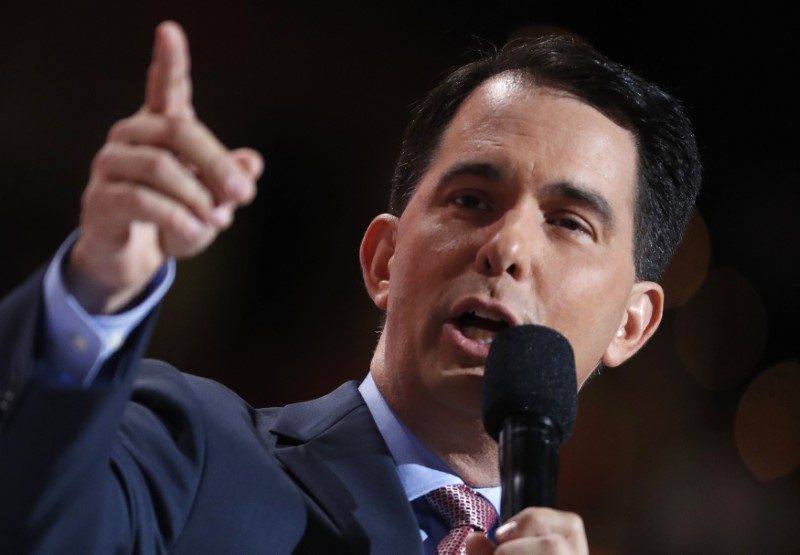By Lawrence Hurley
WASHINGTON (Reuters) - The U.S. Supreme Court on Monday rejected a request to revive an investigation in Wisconsin into whether Governor Scott Walker's campaign to withstand a union-backed 2012 recall election illegally coordinated with conservative advocacy groups aligned with him.
The justices, on the first day of their new term, let stand a 2015 Wisconsin Supreme Court decision to end the probe into whether the Republican governor and conservative groups violated campaign finance laws.
The investigation, led by special prosecutor Francis Schmitz, was launched two months after Walker became the first state governor in U.S. history to survive a recall election. Walker last year mounted an unsuccessful bid for his party's presidential nomination.
"The United States Supreme Court, the Wisconsin Supreme Court and multiple judges have all reached the same conclusion with every ruling - that this investigation by prosecutors was without merit and thus must be ended," Walker said in a statement.
Walker last year signed a state law prohibiting prosecutors from using Wisconsin's secret investigation statute, which had been used to convict four of his aides and investigate his campaign, to probe political crimes.
Three Democratic county prosecutors who asked the justices to hear an appeal of the state court ruling expressed disappointment.
"The state Supreme Court decision, left intact by today's order, prohibits Wisconsin citizens from enacting laws requiring the full disclosure of disguised contributions to a candidate," they said in a statement.
That includes money spent by third parties at the direction of a candidate to support that candidate's election, they added.
The investigation focused on possible unlawful coordination between Walker's campaign and conservative groups including the Wisconsin Club for Growth in 2011 and 2012.
A federal judge in 2014 initially stopped the probe after the Wisconsin Club for Growth filed a lawsuit accusing investigators of sidelining the group from political activities and violating its rights under the U.S. Constitution to free speech, association and equal protection under the law.
A federal appeals court later said the investigation could continue but Wisconsin's high court ultimately stopped it.
Brendan Fischer, a lawyer with the Campaign Legal Center that advocates strong enforcement of campaign finance laws, said the justices' move did not endorse Walker's actions.
"Governor Walker secretly told out-of-state donors they could support him by secretly giving to Wisconsin Club for Growth which, he emphasized, could accept corporate contributions without limit," Fischer said.

"Walker's campaign adviser controlled how Wisconsin Club for Growth spent the money, and after winning re-election, Walker signed legislation advancing the interests of the secret donors."